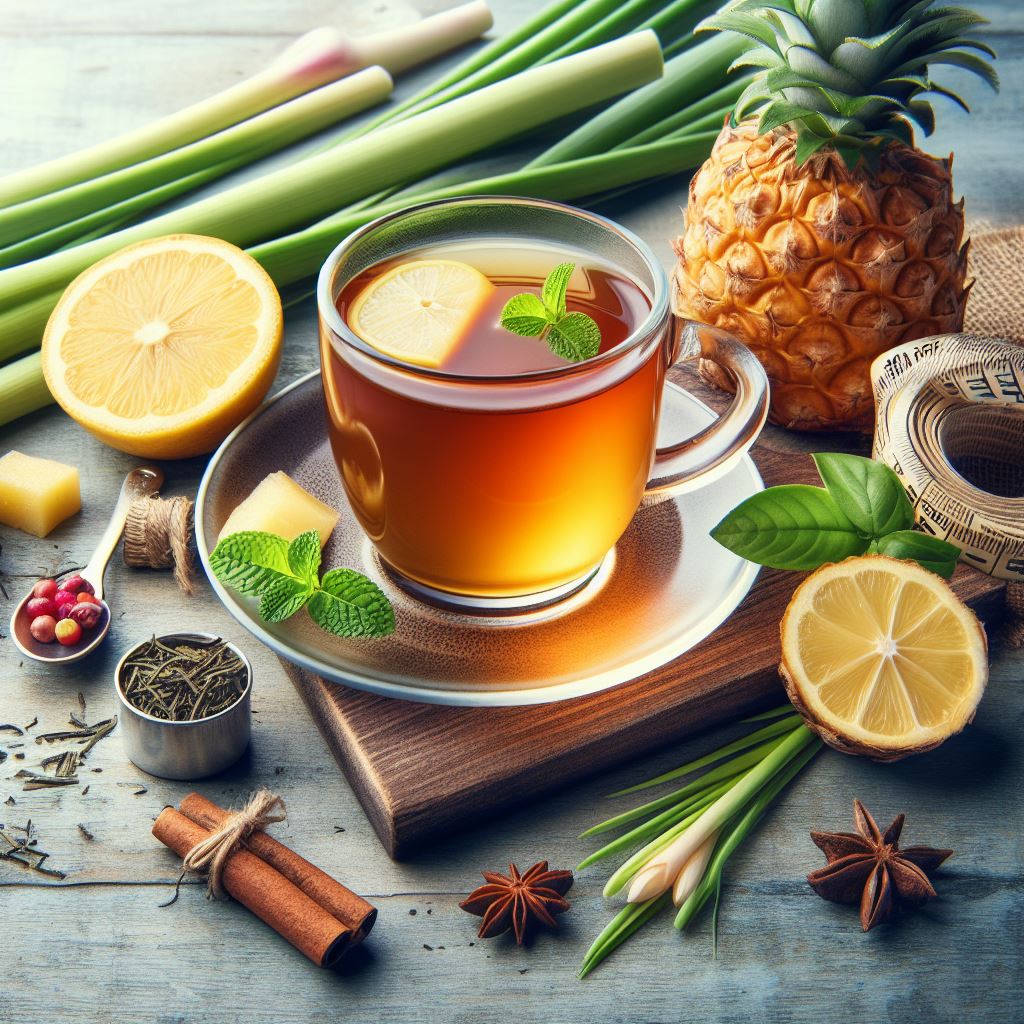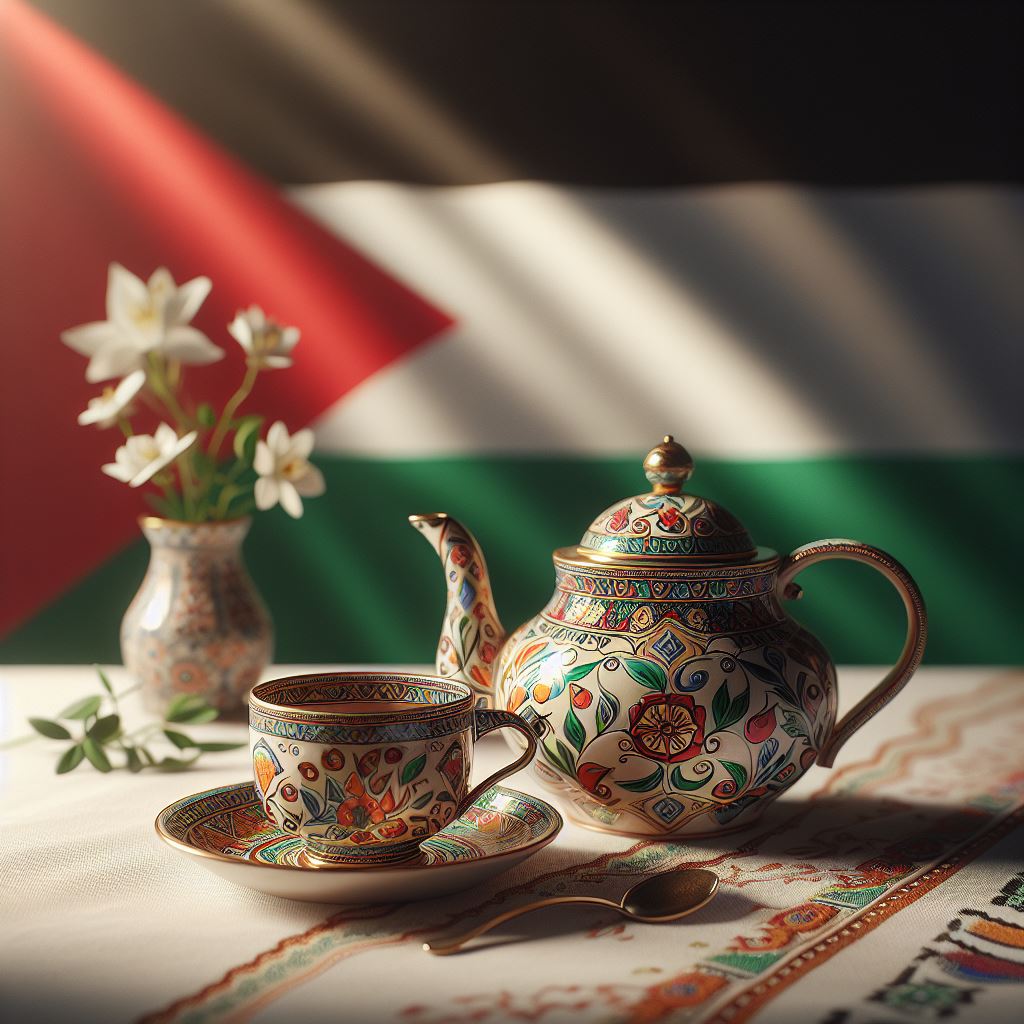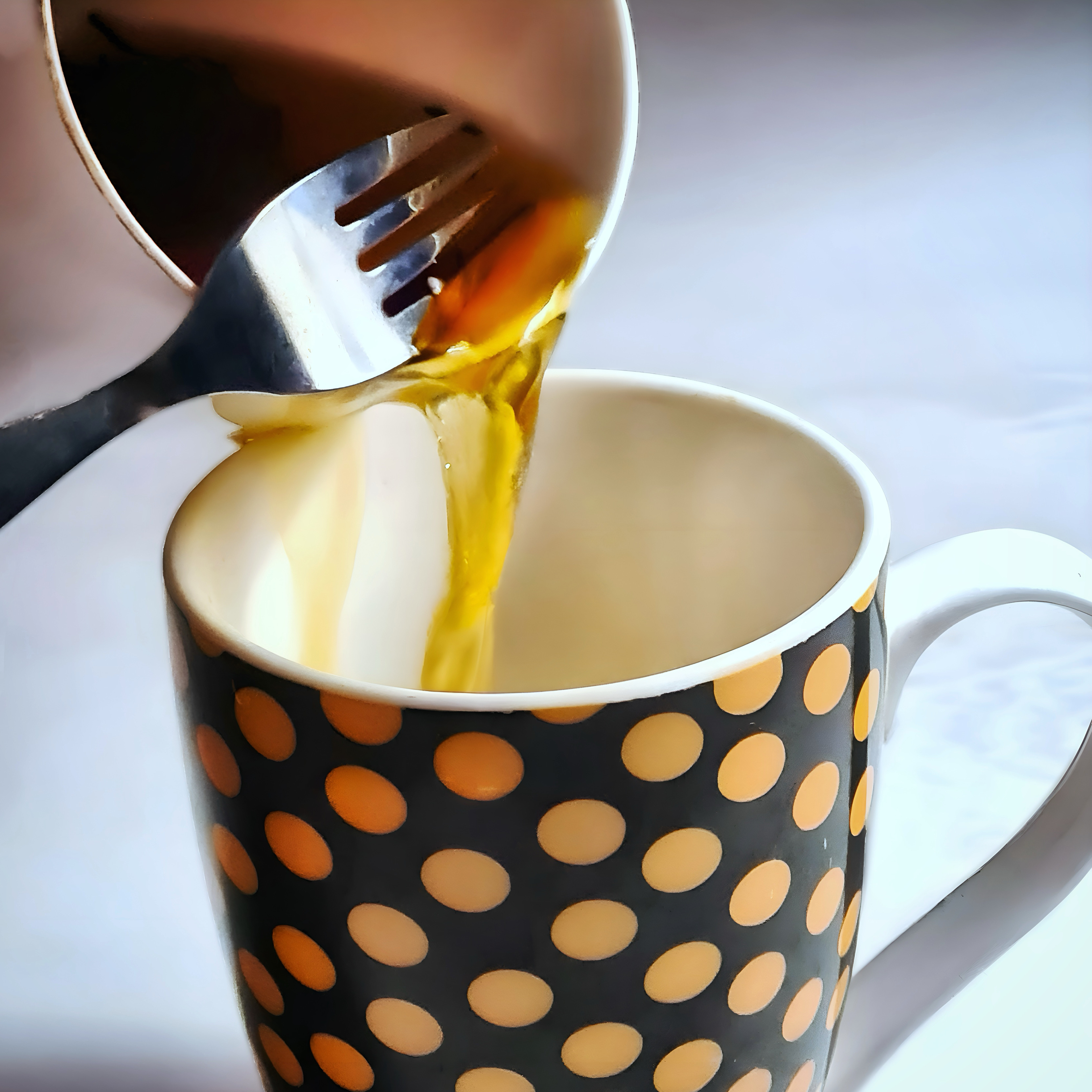Palestine is a land of rich culture, history, and resilience. Despite the ongoing oppression and violence that the Palestinian people face, they have not given up their identity, their heritage, and their hope. One of the ways that Palestinians express their culture and hospitality is through their tea. Tea is a drink that is enjoyed by many people around the world, but each region has its own unique way of preparing and serving it. In this blog post, we will learn how to make traditional Palestine tea at home, and how this simple beverage can connect us to the Palestinian struggle and solidarity.

What is Palestinian Tea?
Palestine tea, also known as Shay bil Maramiya (شاي بالمرامية), is black tea infused with dried sage. Sage is a herb that grows in the hills of Palestine and has many health benefits, such as relieving stomach aches, fever, and menstrual pain. Palestinians often add sugar to their tea to sweeten it, and sometimes mix it with other herbs, such as mint, chamomile, or wormwood. Palestine tea is a drink of hospitality, culture, and medicine. It is served to guests, family, and friends, especially during cold winter days or festive occasions. It is also a symbol of resistance, as Palestinians use it to cope with the hardships and traumas of living under occupation and siege.
How to Make the Tea of Palestine at Home?
Making Palestine tea at home is very easy and requires only a few ingredients. Here are the steps to follow:
- Boil some water in a kettle or a pot.
- Add black tea leaves to a teapot. You can use any kind of black tea, such as Ceylon, Assam, or Darjeeling. The amount of tea leaves depends on how strong you like your tea, but a general rule is one teaspoon per cup of water.
- Add dried sage leaves to the teapot. Again, the amount of sage depends on your preference, but a good ratio is one tablespoon of sage per four cups of water. You can also add other herbs, such as mint, chamomile, or wormwood, if you like.
- Pour the boiling water over the tea and sage mixture and let it steep for about 5 minutes. You can adjust the steeping time according to your taste, but don’t let it steep for too long, as it may become bitter.
- Strain the tea into cups and add sugar to taste. You can also add a slice of lemon or orange for some extra flavor and vitamin C.
- Enjoy your Palestine tea with some dates, nuts, or pastries, and share it with your loved ones.

How to Support Palestine?
Drinking the tea of Palestine is not only a delicious and healthy way to enjoy a hot beverage, but also a meaningful way to show your support and solidarity with the Palestinian people. Here are some ways that you can use tea to help Palestine:
• Buy Palestinian Products
Buy Palestinian tea and other products from Palestinian vendors. By doing so, you are supporting the Palestinian economy and empowering the Palestinian farmers and artisans who produce these goods. You can find many online sources that sell Palestinian tea and other products, such as Shop Palestine, Palestine Online Store, Islam Shop, Palestinian Studies, and Handmade Palestine.
• Donate to Palestinian Charities
Donate to Palestinian charities that provide humanitarian aid, medical care, education, and advocacy for the Palestinian people. There are many reputable and trustworthy organizations that are working on the ground to alleviate the suffering and injustice that Palestinians face, such as Save the Children, Muslim Aid USA, and Interpal. You can donate directly through their websites or join their fundraising campaigns and events.
• Educate Yourself
Educate yourself and others about the history and reality of Palestine and the Palestinian cause. There are many books, films, and online resources that can help you learn more about the Palestinian struggle and culture, such as The Institute for Palestine Studies, The Middle East Children’s Alliance, and Build Palestine. You can also join or organize tea parties, book clubs, film screenings, or webinars to share your knowledge and insights with your friends, family, and community.
• Advocate for the Rights of Palestinian People
Advocate for the rights and dignity of the Palestinian people and demand an end to the Israeli occupation and aggression. You can join or start a local or online campaign, petition, or movement that calls for justice and peace for Palestine, such as [Boycott, Divestment, and Sanctions (BDS)], [Palestinian Solidarity Campaign], and [Jewish Voice for Peace]. You can also contact your political representatives and urge them to take action and support the Palestinian cause.
Watch Our Video:
Conclusion
Palestine tea is more than just a drink. It is a way of life, a way of resistance, and a way of solidarity. By making and drinking Palestine tea at home, you are not only enjoying a warm and soothing beverage, but also connecting with the Palestinian people and their culture, and supporting their struggle and their hope. So, next time you feel like having a cup of tea, why not make it a Palestine tea? You will be glad you did.
Want to learn more about sage tea and its benefits? Check out our article on How to Make Sage Tea: A Guide to the Magical World of Sage.
Discover More Tea-Related Articles:
- How to Make Oat Tea with Honey, Cinnamon, and Vanilla
- Drinking Tea on an Empty Stomach: Why it’s Bad
- How to Make Irresistible Apple Cider Tea this Winter
- The Best 5 Morning Tea Recipes for Winter
- Chocolate Mint Tea: How to Make It Two Ways (Plus a Bonus Tip!)





Leave a Comment